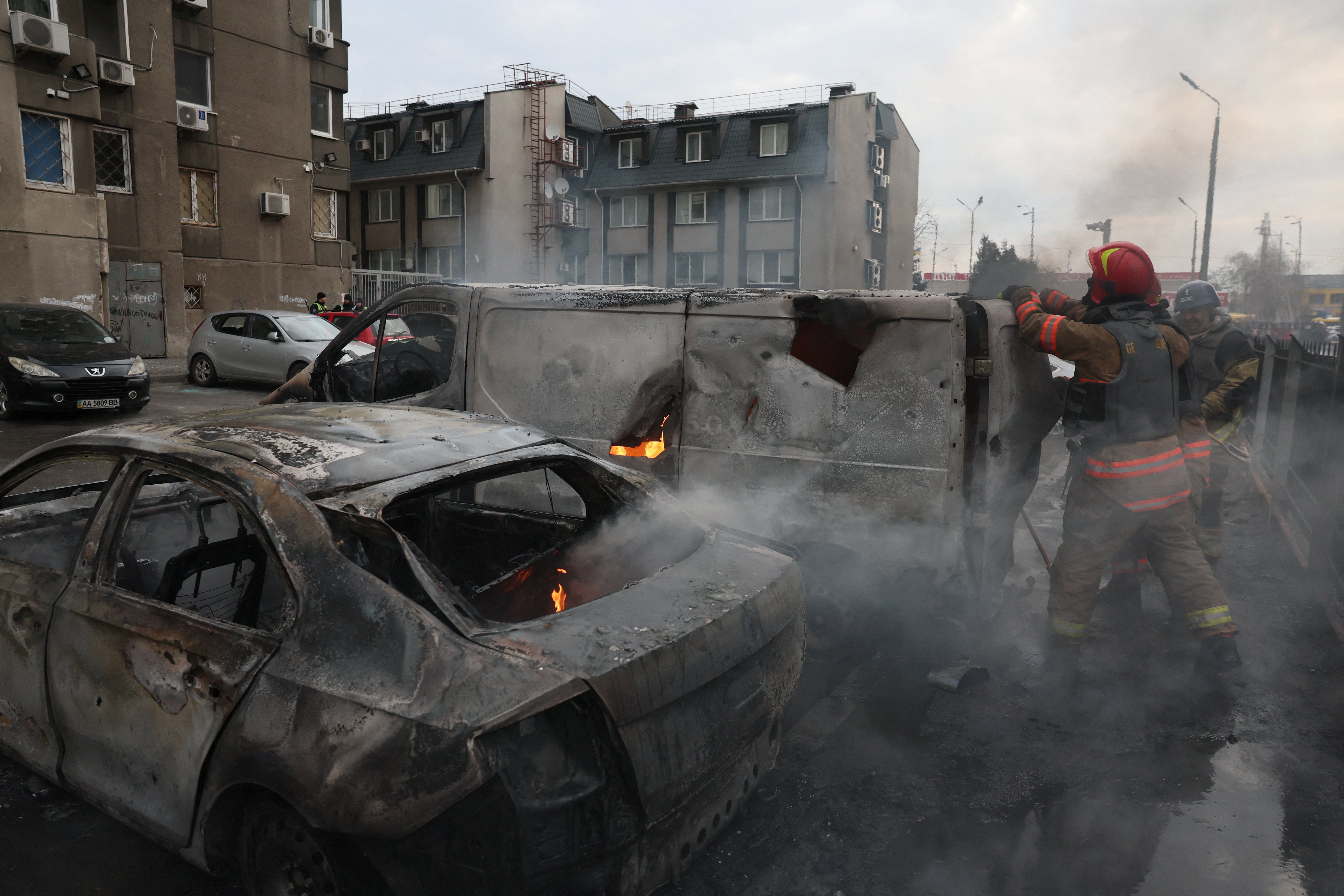What We’re Watching: Russian air strikes, South African economic squeeze, day of resistance in Israel
Russia pummels Ukraine
On Thursday, Russia launched a wave of early-morning air strikes with missiles and Iranian-made drones on Ukrainian cities, its worst attack targeting civilians in a month. At least six people died, and almost half of Kyiv residents were left without electricity. Meanwhile, the Zaporizhzhia nuclear power plant — Europe's largest — was knocked offlinefor the sixth time and is now operating on diesel power. It's unclear why Moscow did this or has waited so long, but perhaps the Russians are running so low on weapons and ammo that it's much harder to carry out coordinated attacks. For their part, Ukrainians living in urban areas have become so accustomed to the barrages that they are hardly intimidated, which is the whole point for Vladimir Putin. On the battlefield, Russia is still struggling to conquer Bakhmut, a key town in eastern Ukraine, amid an ongoing rift between the Russian military and top mercenary warlord Yevgeny Prigozhin.
South Africa’s shrinking economy
Things are going from bad to worse in South Africa. Amid a deepening energy crisis that’s plunged parts of Africa’s most industrialized nation into darkness for up to 15 hours a day, new figures show that the country’s economy contracted by 1.3% in the last quarter of 2022. (Analysts had anticipated a 0.4% squeeze). In a bid to address the deep-rooted energy crisis, President Cyril Ramaphosa this week tapped a new electricity minister, but members of the business community don’t appear to have been placated as fear remains high that Pretoria could be headed for a recession. For context on how corruption-plagued Eskom – the state-owned energy company that runs 90% of the country’s electricity – reached breaking point, and what effect this is having on South Africa’s economy, see this explainer. Crucially, South Africa's economy is just marginally bigger than it was four years ago (0.3%), but the population has grown by 3.5% since then, increasing pressure on ailing infrastructure.
